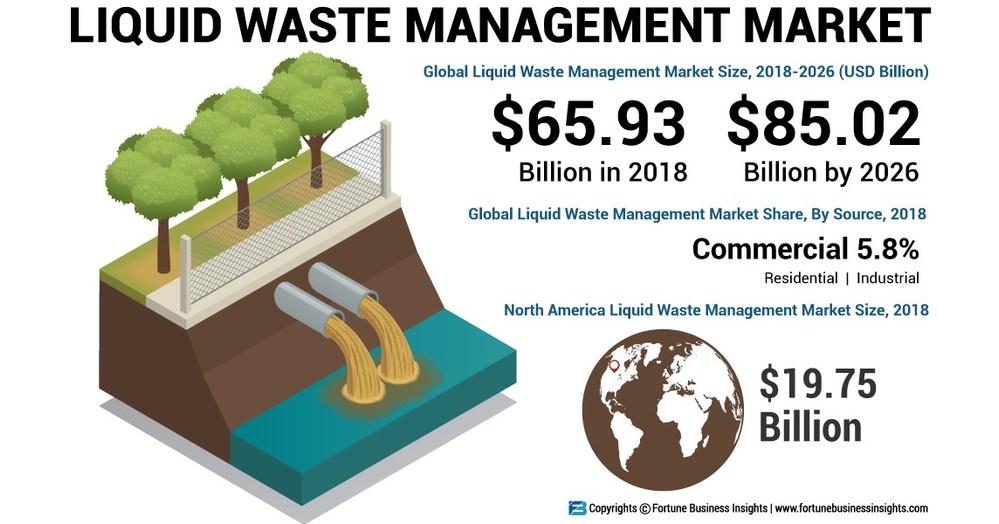The 8-Minute Rule for Reclaim Waste
The 8-Minute Rule for Reclaim Waste
Blog Article
Little Known Questions About Reclaim Waste.
Table of ContentsAbout Reclaim WasteSome Known Incorrect Statements About Reclaim Waste A Biased View of Reclaim WasteOur Reclaim Waste PDFsExamine This Report on Reclaim Waste
Explore the kinds, occurrences, and kinds of liquid waste. Domestic sewer waste refers to the waste and items from a household sewage-disposal tank. This type of waste is developed by human beings in homes, institutions, and other buildings. This only includes sewage-disposal tanks that have a drain field. The proper monitoring and disposal of domestic sewer waste require liquid waste to be moved to a sewage therapy plant where the proper approaches and equipment are applied to detoxify and dispose of waste.
Business waste frequently consists of prospective threats, such as flammable materials or a blend of liquid and solid waste products, and needs an extra advanced and in-depth disposal procedure. The disposal of commercial waste normally entails the filtration of waste prior to transport to guarantee risk-free and correct disposal. Industrial waste is developed from byproducts and runoff of commercial processes and manufacturing.
This kind of waste can not utilize the exact same sewer monitoring transport or procedures as septic or business fluids. The hazardous waste management procedure requires the evaluation and testing of liquid waste before it goes through the disposal process (industrial wastewater treatment). Drainage waste is the fluid waste that originates from drainage and excess stormwater in very inhabited areas or cities
Overflow waste can trigger contamination and flooding if not managed appropriately. Discover more regarding drain cleaning and waste management. Guaranteeing proper waste monitoring can protect against calamities and minimize environmental damage. Both people in domestic settings and professionals in commercial or production industries can profit from recognizing the processes and regulations of fluid waste administration.
Fascination About Reclaim Waste
Get in touch with PROS Services today to learn more about our waste management and disposal solutions and the correct ways to look after the liquid waste you create.
(https://www.slideshare.net/leonaube33101)Do you recognize what occurs to your water when you pull the plug, purge the toilet or drain pipes the washing machine? No? Well, it deserves knowing. This supposed 'wastewater' is not only an essential source however, after therapy, will certainly be released to our land, rivers or the ocean. Made use of water from bathrooms, showers, baths, kitchen area sinks, laundries and commercial procedures is understood as wastewater.

water made use of to cool equipment or tidy plant and tools). Stormwater, a kind of wastewater, is overflow that moves from agricultural and urban locations such as roofs, parks, gardens, roadways, courses and gutters into stormwater drains pipes, after rainfall. Stormwater flows without treatment straight to local creeks or rivers, ultimately getting to the sea.
Not known Details About Reclaim Waste
In Queensland, many wastewater is treated at sewage treatment plants. Wastewater is carried from domestic or industrial sites with a system of sewers and pump stations, recognized as sewage reticulation, to a sewage treatment plant.
The Division of Natural Resources suggests city governments regarding managing, operating and keeping sewage systems and treatment plants. In unsewered locations, neighborhood federal governments may require householders to install individual or household sewer therapy systems to treat residential wastewater from bathrooms, kitchen areas, washrooms and laundries. The Department browse this site of Natural Resources authorizes making use of household systems when they are confirmed to be efficient.
Many stormwater receives no therapy. In some new communities, therapy of some stormwater to remove clutter, sand and gravel has actually begun making use of gross contaminant traps. Wastewater treatment occurs in 4 stages: Eliminates solid matter. Bigger solids, such as plastics and other things incorrectly released to sewers, are gotten rid of when wastewater is travelled through screens.
Utilizes little living microorganisms knows as micro-organisms to break down and eliminate continuing to be liquified wastes and great particles. Micro-organisms and wastes are integrated in the sludge.
Indicators on Reclaim Waste You Need To Know
Nutrient elimination is not offered at all sewage therapy plants since it requires expensive specialized equipment. Clear liquid effluent generated after therapy might still have disease-causing micro-organisms - liquid waste disposal.

The majority of wastewater streams into the sewerage system. Under the Act, regional federal governments carry out authorizations and licences for eco relevant tasks (ERAs) including wastewater releases that may have a neighborhood influence.
The Best Guide To Reclaim Waste
Tracking supplies factual information about water quality and can confirm that licence conditions are being met. The details gotten via surveillance gives the basis for making water top quality choices.
Report this page